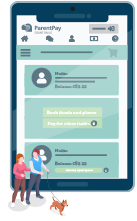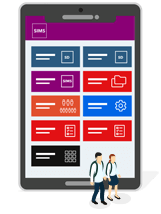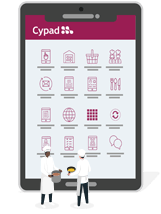With the return to school, we can finally experience a small slice of normality again. And while catching up with academic work is crucial, it’s important that you still make time for school activities.
Given many children have been experiencing mental health problems in lockdown, the return to school is welcome.
However, there may be some lasting effects from the lockdown and resulting academic pressure to catch up. Students may even be struggling with grief after losing people as a result of the pandemic.
Your school will undoubtedly be focused on the mental health of your students and doing what you can to support them. And school activities can help with this.
With COVID restrictions still in place, there are limitations on what can be done safely. However, there is always room for fun school activities.
Your school may choose to run academic activities to help students catch up, alongside extra-curricular activities and wraparound care.
The Benefits of Running School Activities
The benefits of running school activities are clear, both for students and parents, particularly when it comes to improving parental engagement.
According to the National Center for Education Statistics, ‘’extracurricular activities provide a channel for reinforcing the lessons learned in the classroom, offering students the opportunity to apply academic skills in a real-world context, and are thus considered part of a well-rounded education.”
School activities are also very beneficial for students socially and mentally. Perhaps even more so after lockdown and the resulting impact on many children’s mental health.
School activities are great for reducing any feelings of social isolation that children may be dealing with. And can increase their feeling of belonging, encouraging positive mental health.
They can also help children develop their social skills and confidence, which is arguably more important now than ever, with many children struggling as a result of the pandemic.
Perhaps the most obvious benefit of running school activities is that it helps children develop new skills outside of the curriculum. Or can even encourage them to take a break from technology – which is increasingly difficult for them to do.
All school activities that occur outside of the classroom have the potential to teach children important life lessons. And can be used as an opportunity to reinforce academic skills. They can help develop critical thinking, collaboration and other soft skills that are very valuable.
Studies even suggest that students who participate in school activities can academically outperform their peers who don’t.
In short, school activities go a long way to enriching a student’s educational experience and time spent at school. By participating in school activities, students can develop personal and social awareness.
School Activities to Consider
There are many options to consider when it comes to school activities, many of which your school may already be providing or were providing pre-COVID.
With COVID restrictions and safety measures in place, you may have chosen to cancel school activities or you may be running a limited selection of activities.
Consider running your usual clubs each month – rather than once a week – as long as it’s safe to do so. This means that all children still get the opportunity to participate in their chosen activity, just less frequently.
As you will know, there are many different types of school activities to consider, including extra-curricular activities and wraparound care. You may also be running catch-up sessions to make up for lost learning.
Below we explore some school activities that you should be able to deliver in a COVID-safe way.
Wraparound care
Wraparound care is something that the majority of schools already provide alongside their traditional teaching. And it’s something that many schools have already reintroduced in a COVID-safe way.
Alongside schooling, wraparound care is perhaps the most valuable thing that schools can provide. As well as the benefits for students, it’s essential to many parents and for the economy, giving parents access to affordable childcare outside of school hours so they can get back to work.
Consider reintroducing your wraparound care as soon as you can do so safely.
Academic activities
If you haven’t already, consider factoring academic catch-up sessions or workshops into your planned school activities.
Where possible, consider breaking down these sessions into bubbles to make the content easier to tailor while adhering to social distancing measures.
If this isn’t feasible, you may want to consider running your catch-up sessions in year groups instead – simply limiting the number of places available at each session.
You may also encourage parents to continue home learning to help their children catch up more quickly. This will involve working closely with parents to let them know what they can do to support their children’s learning.
You could even do a webinar or presentation for the parents of each bubble or year group, giving them advice on what they should be focusing on.
Health & wellbeing activities
The pandemic, lockdown and resulting social isolation has impacted many children’s mental health. On top of this, it’s likely many children will continue to suffer with mental health issues amid external pressures to catch up on lost learning.
As a result, health & wellbeing activities to encourage positive mental health are more important than ever before. Consider what activities your school can offer specifically aimed at supporting children who may be struggling at this time.
For inspiration, here are some ideas on wellbeing activities for schools from Place2Be: an organisation focused on improving children’s mental health.
It may also be good to consider running workshops for children on internet safety in light of heightened screen time during the pandemic – both students and parents could benefit.
If you’re looking for some support on recognising the signs that a child may be struggling with mental health issues, there’s support available.
Public Health England has published a free 3-hour online training course that could help you identify children who may be struggling: Psychological First Aid: Supporting Children and Young People.
Extra-curricular activities
As important as academic activities are at the moment, physical activities and clubs remain equally as important. Children are moving less now that they are largely confined to their homes, so any activities that get them moving are great.
It may be easier for your school to run outdoor physical activities than indoor ones. You may even be able to offer both options in a COVID-safe way. If you can, that’s even better, as physical school activities are great for children. And they can be stress relieving and confidence building.
School-wide activities may seem out of the question at the moment, but they could still be coordinated remotely. Digital assemblies or competitions could be a great way to bring multiple bubbles or years together in a COVID-secure way.
With government guidelines stating that all school activities, sports and clubs can restart to help parents get back to work, it’s really up to your school to decide which extra-curricular activities you think you can deliver safely.
Parental engagement activities and events
Parents’ evenings are more critical than ever due to lost learning. Try and work with parents to establish pupil progress and what needs to be done to catch up.
Physical parents’ evenings may be challenging to run in a COVID-safe way in person. However, thanks to software, such as SchoolCloud’s Parents Evening System, you can take your meetings online.
With remote and digital events offering maximum convenience for staff and parents, they still have a place after COVID 19. Not to mention the fact they’re invaluable to parents who have other commitments or struggle for childcare for younger children.
For more ideas on activities, check out our free download ‘Ideas for Connecting and Communicating’ with students, parents and staff during COVID-19.
Running School Activities in a COVID-Safe Way
By now, we’re sure you are well versed in delivering education in a COVID-safe way. Ultimately, what you’ve learnt during this time will help you to deliver school activities in an equally safe way.
Notably, to maximise the safety of extracurricular activities, the government has released specific guidelines and restrictions relating to after-school clubs.
The government guidance recommends that you regularly conduct risk assessments to identify any potential risk areas. As part of your risk assessment process, you should identify the protective measures you’re going to put in place.
Ensure that you communicate the steps you are taking to make your school activities as safe as possible to parents and carers.
The guidance also suggests that in instances where you’re unable to maintain bubbles, you should aim to keep your students in a small group of no more than 15 children.
View more information on the government guidelines here.
With many restrictions in place and lots of things to consider when running clubs in a COVID-safe way, it can be very challenging to manage your school’s clubs and activities manually.
There are a number of systems available that can support you with managing clubs and school activities during COVID and beyond.
A clubs management system, such as Schoolcomms Clubs, can help you to deliver clubs and school activities safely and efficiently – while parents can book their preferred sessions within the School Gateway app, enabling your school to manage costs, numbers and bookings with ease.
If a COVID case is reported, you will easily be able to identify which clubs that individual has been involved in and notify the other parents that their children need to quarantine.
Tools such as Microsoft Team and Zoom will support you with running activities for parents or school-wide class activities. SchoolCloud’s Parents Evening System can support you with running parents’ evenings or other one-to-one activities with parents.
Systems such as Medical Tracker can also help with tracking tests for staff and students, notifying anyone who came in to contact with an individual who tested positive.
Ensure that you keep up to date with the latest guidelines from the government.
For more information, the Department for Education has published a guide on Keeping Children Safe during Sports Clubs and other Extra-Curricular Activities.





